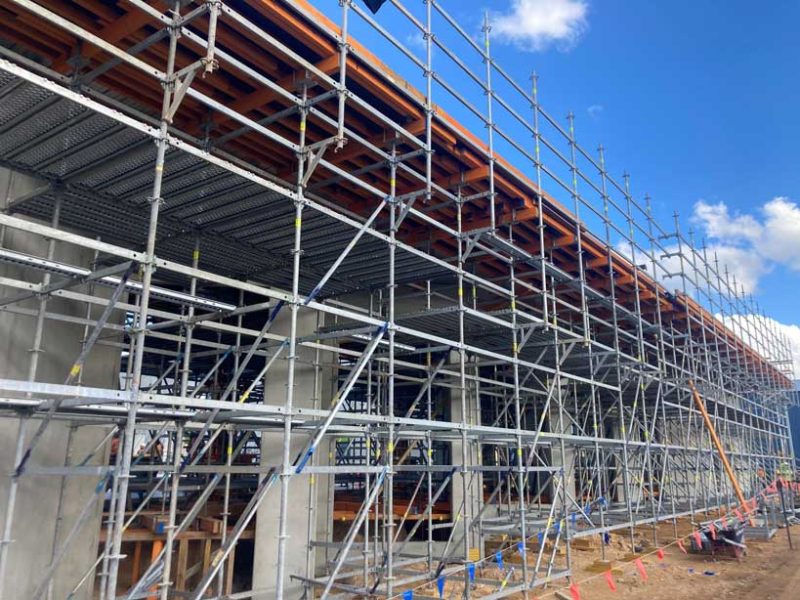
Discover expert insights on formworking and material science from BridgeCon’s formwork engineering specialists. Enhance infrastructure projects across Victoria.
As a leading civil infrastructure contractor in Victoria, BridgeCon understands the critical role formwork plays in achieving exceptional construction projects. Formwork, also known as shuttering, is the temporary structure that supports freshly poured concrete until it cures and gains sufficient strength. Selecting the right formwork system and utilising the best materials are crucial decisions that impact the entire construction process.
Why is Formwork Selection Important?
Formwork selection goes beyond simply choosing a mould for the concrete. It’s a strategic decision that influences various aspects of the project, including:
• Safety: A robust and properly designed formwork system ensures the safety of workers on-site.
• Cost-effectiveness: The chosen formwork system should be cost-efficient for the project scale and complexity.
• Schedule: Quick and efficient formwork erection and dismantling can significantly impact project timelines.
• Surface Finish: The chosen formwork material influences the final finish of the concrete surface.
• Concrete Quality: A well-designed formwork system minimises the risk of concrete defects.
Material Science Considerations for Formwork
Material science considerations are the cornerstone of successful formwork implementation. The chosen materials must possess the necessary strength and rigidity to withstand the substantial weight and pressure exerted by wet concrete. Here’s a breakdown of some commonly used materials:
• Timber: A traditional and readily available material, timber formwork is cost-effective for smaller projects. However, it requires treatment for moisture resistance and may not be suitable for complex geometries.
• Steel: Highly durable and reusable, steel formwork offers a smooth finish and is ideal for intricate designs. However, its higher cost makes it more suitable for larger projects.
• Aluminium: Lightweight and resistant to corrosion, aluminium formwork is a popular choice for faster construction due to its ease of handling. While it offers a good finish, it may not be suitable for heavy loads.
• Formwork Plastic: Offering a lightweight and cost-effective solution, this is often used for specific applications like slabs or columns. However, it may have limitations in terms of reusability and strength.
Beyond Material Selection: The Expertise of Formwork Engineering
While material selection is vital, formwork engineering expertise plays a crucial role in achieving success. Our team of qualified engineers provides a comprehensive approach to formwork, encompassing:
Formwork design and analysis – Utilising specialised software, our engineers design formwork systems that meet structural requirements and ensure worker safety.
Formwork planning and scheduling – We create a meticulous plan for formwork erection, dismantling, and material management, optimising project timelines.
Site supervision and support – Our experienced personnel provide on-site supervision and support to ensure proper formwork construction and adherence to safety protocols.
By partnering with BridgeCon, you gain access to a team of formwork engineering specialists who will guide you through every step of the process. We take pride in delivering exceptional formworking solutions that contribute to the overall success of your construction project. Call us today to discuss your formwork requirements and experience the difference that expert formwork engineering can make.
Optimized by: Netwizard SEO

